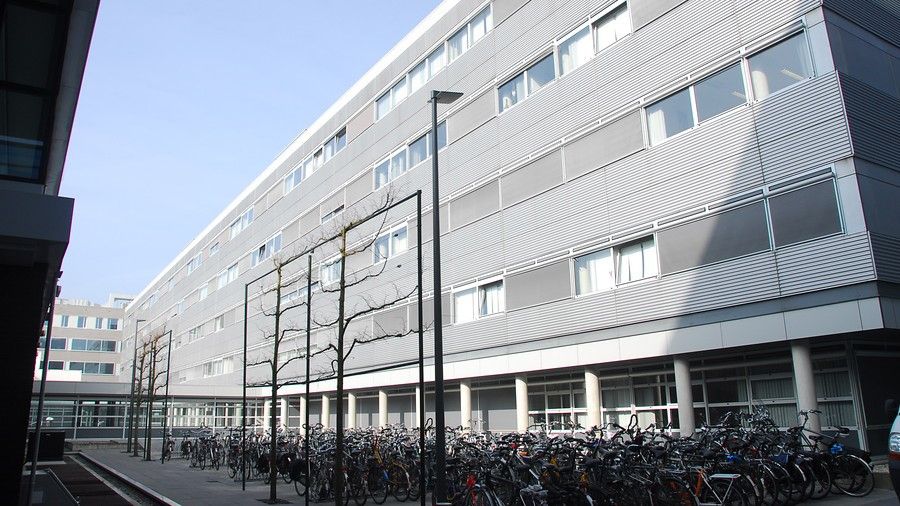Programme Director TCS: Perfectly Balanced, as All Things Should Be
Unless you are a certain sports gear producing company, you cannot just do it. Any human, initiative or organisation needs a big idea supporting them and driving all their activities. As the programme director, I am often asked…

Unless you are a certain sports gear producing company, you cannot just do it. Any human, initiative or organisation needs a big idea supporting them and driving all their activities. As the programme director, I am often asked what sets our programme apart from others in the field. One aspect that I am particularly proud of is the balance that we strive to achieve in our curriculum.
At the heart of our TCS programme is the concept of RED: Research, Engineering and Design. Has always been, but I have started to use these three labels more since I have realised how important they are for this programme, both for teachers and students. We believe that only dedication to all these three pillars provides a well-rounded foundation for a successful career in computer science. By focusing on these areas, our students are able to develop a broad set of skills that allows them to approach problems from multiple angles and come up with innovative solutions.
Research is an essential part of any computer science programme, as it allows students to stay up-to-date on the latest developments in the field and to make their own contributions to the field through original research projects. Our programme’s emphasis on research materialises in opportunities for students to apply cutting edge methods and tools to real-world problems and to present their findings to others. Those who are interested exclusively in research, are better off studying elsewhere, where their focus is entertained enough. Those who can acknowledge all three while having a preference for research, will find themselves working in R&D departments or becoming PhD or EngD students working on cutting edge projects of industrial significance.
Engineering is the practical application of computer science principles to the development of software and hardware systems. Our programme has always provided students with a strong foundation in engineering principles and practices, covering algorithms, data structures, computer and networking architecture, programming languages, etc. This foundation allows the graduates to excel in a wide range of engineering roles, whether they are building software applications or focusing on hardware. Universities of applied sciences are usually advertised as producing strong engineers, which is true, yet their best and most successful graduates are those with broader interests and numerous hobbies. At TCS in Twente you grow as an engineer while also learning the concepts behind the language constructs and patterns, and get accompanying skills that make you employable.
Design is an often overlooked aspect of computer science, yet an essential part of creating effective technological solutions that are both user-friendly and developer-friendly. Our programme has always placed a strong emphasis on design, teaching students how to architect new systems, connect existing libraries, and create user experiences that are intuitive and enjoyable. By incorporating design into their work, our graduates are able to create technology that is not only functional, but also aesthetically pleasing and robust enough to be functioning for many years. Graduates are aware of the complexity of the software world and equipped with skills to architect highly nontrivial systems of the future.
By focusing on RED, our programme provides a balanced curriculum that prepares students for a wide range of careers in computer science: whether they are pursuing roles in R&D, aiming to be software developers or software architects, our graduates are well-equipped to succeed in their chosen fields. Goes without saying that we also encourage them to deepen their knowledge even further and choose one of our Master specialisations… Whatever the chosen path might be, I am confident that the balance provided by our RED-centric curriculum has set them up for successful careers.
About Vadim
Dr. Vadim Zaytsev finished Telematics, which now has been absorbed into the CS master as “Internet Science & Technology” specialisation, at UT as his second Master degree. He got his PhD title at the Free University (VU) in Amsterdam. Besides teaching, he has been an active researcher, and published many academic papers on topics such as software engineering and modelling, modernisation and migration of legacy software, transformational and generative techniques, and software languages and grammars, earning the nickname “grammarware”. He worked several years in the industry, developing new compilers, some of which were acknowledged by Microsoft Tech awards.
Since 2020, Vadim is back at UT as an associate professor of software evolution. In 2021, he also won the Inter-Actief Decentralised Educational Award (IDEA). Vadim has a cat named Viking.

